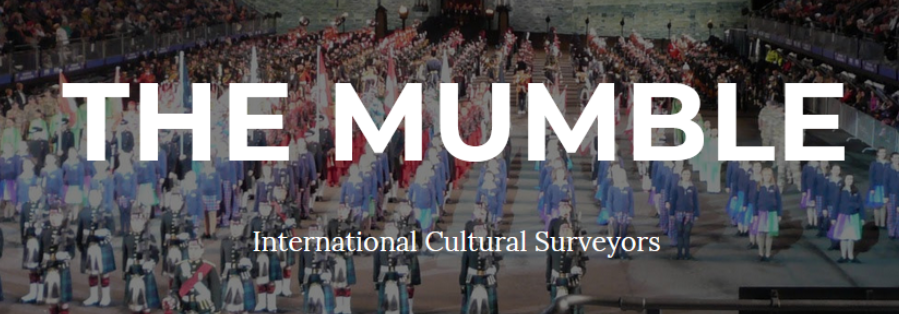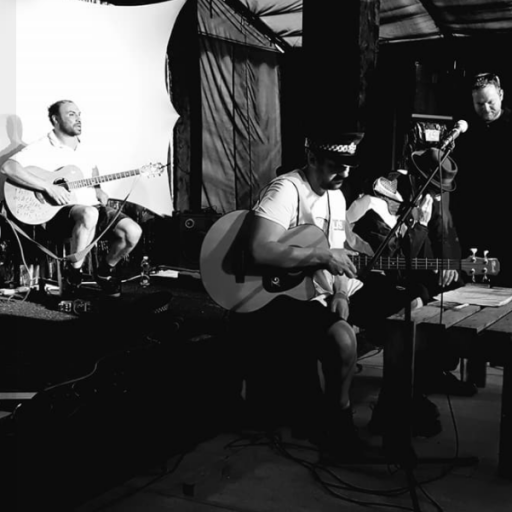Partition

Leeds Playhouse
Leeds
Until Saturday 10th November
Script: ![]() Stagecraft:
Stagecraft: ![]() Performance:
Performance: ![]()
Viewing this play was a first on two fronts – the first time I had seen a live radio play and the first time I had seen a piece of work addressing Indian Partition. I was wary that I may be in for a lecture and with the stage left to the bare bones set of microphones and a table with sound effects equipment there would be no-where to hide from it’s preachy tones. Yet I need not have feared for ‘Partition’ addressed complex issues with a light touch. As a play it emphasised the humour of its situation whilst not shying away from the historical horrors behind it.
The play started with a collage of crackly recorded voices from the past as politicians, activists and royalty spoke of the fateful date when the Indian subcontinent was split in two and divided into India and Pakistan. Underneath the mix was the ghostly echo of a news bulletin unfurling the events. Then we were upended by a crying woman calling out to someone – her boyfriend, husband, father. It was all far from clear. The play started out in this rather jumpy way which felt initially quite jarring. I struggled to tell who the characters were or how they related to each other. This wasn’t helped by the novelty – to myself at least – of having different characters in the same costume playing multiple characters in quick succession, and with no stage props or scene changes to help guide me. Soon however the play seemed to settle into itself and I became accustomed to the nature of the radio play set up.

In fact the nature of how the play was staged often emphasised the skills of the actors involved. The actors were able to convey their different characters through acts as simple as taking off a hat or adjusting a scarf and at times seemed to physically embody their differing roles beautifully. All the actors were worthy of praise in this regard but special credit should go to Sushil Chudasama whose performances of both the energetic and playful Rajpal and his reserved Grandfather, Ranjit contrasted beautifully.
At first I was initially put off slightly by the central couple who I found a bit too ordinary to be compelling. The supporting cast of characters seemed bolder and more intriguing and yet I gradually I began to see that the strength of the play was in its every day setting and its gentle humour which rooted it in a provincial Northern landscape which felt both familiar and safe. The cosiness of this setting lent both tension and power to the moments when darker undercurrents were revealed.

The use of sound throughout the play was superb and added a great deal to the piece helping the audience to evoke changes not only in space and time but also in mood. With clever use of sound effects and music we were one minute in the cavernous magnificence of the town hall, the next in a bustling cafe. I found the judicious use of silence also highly effective lending power to moments of already heightened emotion such as the monologues.
Once we learnt of the struggles of the two lovers to bring together their families for their special day the play began to explore the darker undercurrents of the subject and the reasons for these divisions. These moments in which we found out the real life brutalities partition was responsible for were handled with a marked subtlety. In lesser hands these shocking and emotional truths – they are based on real life testimonials – could have jarred badly with the overall tone of the play but here they almost snuck up upon the audience making them all the more moving. We learn not only how events of real life horror can change individuals beyond recognition but how the fear and anger associated with them can be passed down the generations and have repercussions decades later and thousands of miles away from their ground zero.
I found Partition to be both an enjoyable drama full of lively characters and also a very effective tool for the historical and cultural lessons it clearly wished to teach. It’s light touch and affection for the people and places it evoked was its real strength and in this way made the darkness underneath seem all the more potent than any number of more bleak and worthy works could have been.
Ian Pepper

Posted on November 9, 2018, in England. Bookmark the permalink. Leave a comment.


Leave a comment
Comments 0